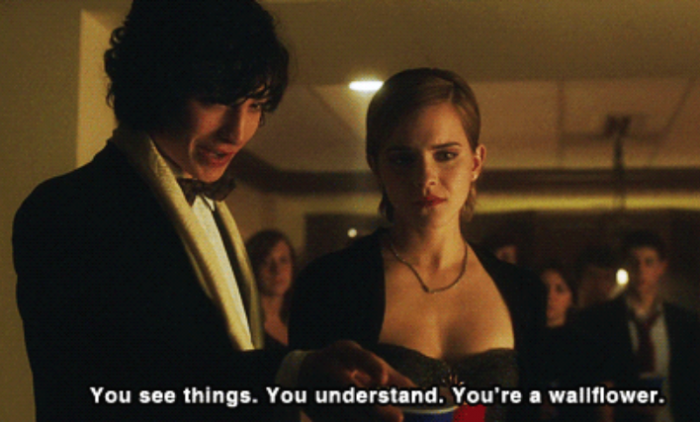As a psychiatrist and an empath, I am fascinated by how the phenomenon of empathy works.
I feel passionately that it is the medicine the world needs right now.
Empathy is when we reach our hearts out to others and put ourselves in their shoes. It also means that we can be happy for others during their times of joy. The Dalai Lama says, “Empathy is the most precious human quality.”
During these stressful times, personally and globally, it’s easy to get overwhelmed. Even so, empathy is the quality that will get us through. It enables us to respect one another, even if we disagree. Empathy doesn’t make us sentimental softies without discernment. It allows us to keep our hearts open to foster tolerance and understanding.
Being empathic might not always be effective in getting through to people, but I think it’s the best chance we have for peace in our own lives and on the planet.
In my book, The Empath’s Survival Guide, I discuss the power of empathy, and the difference between ordinary empathy and being an empath. Like many of my patients and myself, empaths are people who rank high on the empathic spectrum and physically feel what happens to others in their own bodies.
As a result, empaths can experience deep compassion for others—but they often get exhausted from feeling “too much” unless they develop strategies to safeguard their sensitivities and set healthy boundaries. Research suggests that empaths may have a hyperactive mirror neuron system in their brains. These are the cells responsible for compassion; because of an empath’s tendency to experience pain in others, it’s important for us to learn how to be caring without shouldering the suffering of others or the world.
The message of empathy is always “I hear you,” even if you don’t agree with someone’s reasoning. These magic words are the first step to making others feel safe. However, being an empath doesn’t mean that we become a doormat or tolerate abuse just to keep the peace in unhealthy situations. Rather, once we can see where someone is coming from, we can make the best decision depending on the situation.
Empaths also share all the traits of what Dr. Elaine Aron refers to as “Highly Sensitive People,” or HSPs, which includes a low threshold for stimulation, the need for alone time, sensitivity to light, sound, and smell, plus an aversion to large groups. It also takes highly sensitive people longer to wind down after a busy day since their system’s ability to transition from high stimulation to quiet time is slower.
Empaths share a highly sensitive person’s love of nature and quiet environments. However, an empath’s capacity for highly developed intuition and their tendency to be an emotional sponge who absorbs the stress of the world, sets them apart from someone who is sensitive to excessive sensory stimulation.
Are You an Empath?
To find out, take the following 20-question self-assessment, answering “mostly yes” or “mostly no” to each question.
- Have I been labeled as overly sensitive, shy, or introverted?
- Do I frequently get overwhelmed or anxious?
- Do arguments or yelling make me ill?
- Do I often feel like I don’t fit in?
- Am I drained by crowds and need alone time to revive myself?
- Am I overstimulated by noise, odors, or nonstop talkers?
- Do I have chemical sensitivities or difficulty tolerating scratchy clothes?
- Do I prefer taking my own car places so I can leave early if I need to?
- Do I overeat to cope with stress?
- Am I afraid of becoming suffocated by intimate relationships?
- Do I startle easily?
- Do I react strongly to caffeine or medications?
- Do I have a low pain threshold?
- Do I tend to socially isolate?
- Do I absorb other people’s stress, emotions, or symptoms?
- Am I overwhelmed by multitasking and prefer doing one thing at a time?
- Do I replenish myself in nature?
- Do I need a long time to recuperate after being with difficult people or “energy vampires”?
- Do I feel better in small cities or the country rather than large cities?
- Do I prefer one-to-one interactions or small groups rather than large gatherings?
Now calculate your results:
If you answered “mostly yes” to one to five questions, you’re at least partially an empath.
Responding “mostly yes” to six to 10 questions means you have moderate empathic tendencies.
Responding “mostly yes” to 11 to 15 questions means you have strong empathic tendencies.
Answering “mostly yes” to more than 15 questions means that you are a full-blown empath.
Determining if you’re an empath will clarify your needs and which strategies to use to meet them.
Choosing empathy over anger and fear generates a profound shift in our relationships, personally and globally. It catalyzes a compassionate evolution of humankind and a hope for us getting along in more meaningful ways as individuals and as a planet.
Empathy will be the deciding factor between war and peace, between hatred and tolerance. We need to grow larger than our smaller selves and egos to be empathic in our lives.
Empathy is the game changer. It is the trait that will ultimately save the world.
~
Excerpted from The Empath’s Survival Guide: Life Strategies for Sensitive People by Judith Orloff, MD.
~
Another good one from Dr. Orloff: 12 Music Picks for Empaths & Sensitive People.
~

 Share on bsky
Share on bsky







Read 28 comments and reply